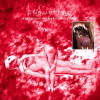I was worrying about how good things are fleeting the other afternoon when I thought of Lil Ugly Mane. He was a rapper and producer from Richmond, Virginia, though he doesn’t do either of those things anymore, at least publicly. Before rap, he made noise and hardcore music. Now, after rap, who knows? But from 2011 to 2013, he was one of the genre’s most aesthetically refined artists. His lyrics were morbid and aggressive, sometimes to a comic degree; his voice was almost always pitched-down, so his tongue sounded swollen. As a producer, he possessed an uncanny ability to make samples or synths sound deranged, like Three 6 Mafia did in the ’90s but also like Arca does today. (His beats were often credited to Shawn Kemp, another alias; his real name is Travis Miller.) Together, the style and substance of his music conjures something like a wounded predator that still wants to kill you even though it’s about to die itself.
My favorite Lil Ugly Mane track was his last single, “On Doing an Evil Deed Blues,” a seven-minute swan song that explained his decision to retire the project. In 2013, he was at a sort of tipping point—acclaimed by enough fans of the avant-garde that major publications, show bookers, and labels would soon be forced to acknowledge him—though he seemed actively opposed to the music business, beyond always charging a few dollars for his tunes. (I wrote about him once, but my pitches for bigger features were always rejected. The lack of coverage elsewhere can perhaps be attributed to some combination of his being a white rapper, not employing a PR, and just being so out-there.) In a Facebook post at the time, he talked about the meaning behind “Evil Deed” and outlined meta-storylines inscribed by its beat, but you can get the basic gist from the hook: I got some records, cut some samples, made em mine/ I wrote some raps, I had a couple fire lines/ A couple labels asked me if I want to sign/ But rapping ain't my grind, I just used to like to rhyme. Like the last voicemail from an ex, or something, it’s the sort of goodbye I’ve always wanted to keep saved on my phone.
Shortly after “Evil Deed,” he made some last posts to his Facebook page, including one connecting graffiti’s disappearance as an element of hip-hop to what he perceived as destructive egotism among artists of the genre’s present. “You forgot about the concept of taking a name, throwing it on a wall, and walking away and letting that piece speak entirely for itself,” he wrote. That’d be his strategy. For two years, he said nothing. There were some quiet releases—a collection of instrumentals and a “secret B-side”—and some beats for other people, but nothing substantial. On his Bandcamp, the bio called Lil Ugly Mane “defunct” and promised a final release and boxset with the Ormolycka label. As the years passed, that idea, too, seemed abandoned.
Then Lil Ugly Mane did something unexpected: this week he dropped a two-hour-long mixtape called Third Side of Tape, the final part of a trilogy that he had begun and left hanging in 2013. This installment compiles recordings from 1999-2012, according to its album art, in a varied mix of original productions and hard-to-trace songs by others waiting to be flipped anew. He raps for, like, five minutes on the whole thing; in its place, there are referential samples. One of the biggest gut-punches arrives shortly into “Side Two-A,” involving a sampled line from a 1999 release from Sunz of Man, a group signed to Wu-Tang’s label in the late ’90s. It’s typically heady and sad—Hate to go to the sleep because of the dread that’s in my head—repeated for minutes in Shabazz The Disciple’s squirrely voice as the beat mutations move from turntable jazz to jungle. Next, there’s a punk song, then an old a cappella version of someone covering Harry Belafonte's "Jamaica Farewell.”
As much as the surprise-release is exciting, Third Side of Tape is also bittersweet, since its liner notes finally name and give a release date to the boxset that will likely mark the actual end of Lil Ugly Mane’s career: Oblivion Access, out this June. You want to look forward to it, but you also don’t.
Before he went even more underground, in 2013, Lil Ugly Mane only ever gave a handful of interviews. One was to Mishka, who he told, “Making the cover is the best part of making music. I feel like I've started projects in the past just cause I had made a cover and wanted to use it for something.” It’s understandable, then, that during his quiet period, he continued releasing installments of a clothing collaboration with Thunder Zone, the label run by the Milwaukee rap-rocker Juiceboxxx. Their takes on hip-hop couldn’t be further apart, but they’re an illuminating pairing: Juice is another guy with a deep catalogue of idiosyncratic music, and interest in noise music, and he partakes in a similarly doomed kind of introspection. On the outro to a Juiceboxxx tape released the same year as Lil Ugly Mane’s “Evil Deed,” Juiceboxxx shouted over the horns from an SNL credit sequence, “I don’t know what the fuck I’m going to do next, man. Maybe go to college, start calling myself John… Rewind the tape, start over.” He’s still releasing music, but not without sprinkling in songs like this spring’s “Might Stop Rapping (Might Get a Real Job).”
For both of these guys, it’s easy to see how the business of art can feel like a dead end. For every year that passes, being a 30-year-old rapper seems less appealing; it’s unfortunate and backwards, but an artist is rarely more commercially valuable than when they’re new. At times, the whole economy of new music feels like planned obsolescence. And so it is that, like the cult electronic pop duo Air France, who published a letter of retirement after collapsing under the weight of the pressure to make an album that felt original, or the blog Hipster Runoff, which self-combusted after too much self-analysis, Lil Ugly Mane is making the winding-down of his career a commentary about its own non-viability. Listening to the disparate Third Side of Tape, you’re sort of forced to compare your own rolodex of reference points to Lil Ugly Mane’s. In my case, it makes me feel like I know nothing. It’s hard to imagine him going creatively bankrupt. So maybe I’m being crazy, and overlooking the lamer and self-satisfied aspects of his whole drawn-out exodus, but I really like to think that Lil Ugly Mane’s quitting is about what he says: how incompatible his arty vision of rap was with the reality of releasing music, even if that’s just personal stress when a few thousand strangers start having expectations of you.
Beyond the announcement of Oblivion Access, the liner notes to Third Side of Tape call back to “Evil Deed.” He says that “I Quit” by The Descendents is a better song, and that had he listened to it first, he “would have probably just posted a YouTube version of that song and a link to the Google image results for ‘Dalai Lama laughing’ rather than spending any time whatsoever making my own song.” Like a lot of Lil Ugly Mane’s stuff, that's funny and sad, and it’s a joke I'm still glad he made.


